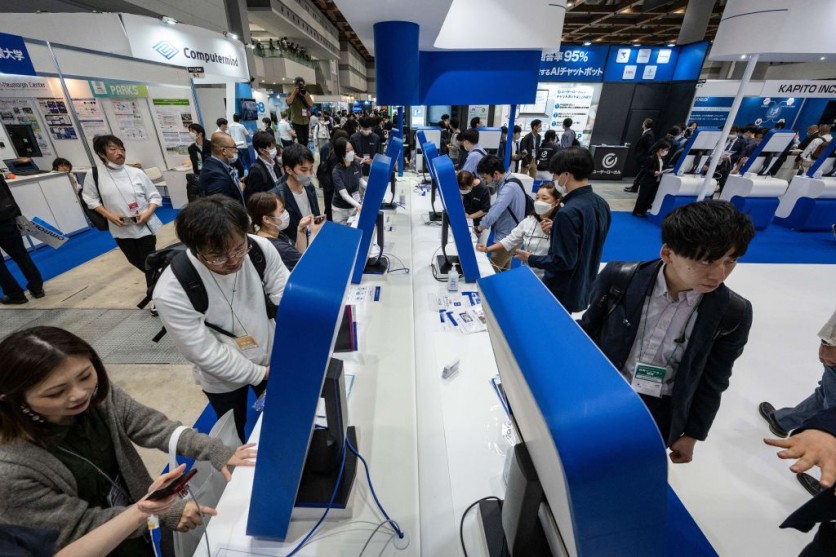Japan is promoting itself as the most AI-friendly nation to lure investments from Europe and beyond with its regulation-light strategy.
While the EU just passed the AI Act, the world's first comprehensive AI law, Japan's AI Strategic Council, which leads talks, favors regulations led by the tech industry, as reported by Nikkei Asia.
According to a source familiar with the council's proceedings, "hard law" AI laws are unpopular. The panel promotes industry by prioritizing innovation over regulations. In contrast, under the AI Act, the EU enforces norms through legal and governmental mechanisms.
Japan Loosens AI Restrictions to Win More Investors
Japan's recent measures on artificial intelligence reflect a departure from its laissez-faire approach. Legislators from the Liberal Democratic Party, the ruling party, maintain their commitment to a modest regulatory system.
LDP AI project team leader Masaaki Taira said, "Japan is not inclined toward strict regulations" and they are targeting "minimal interference." He pointed out that Japan has a "slightly loose" AI policy compared to the EU, allowing flexibility in laws to attract talent and finance, the report stated.
KPMG Consulting partner Ken Kumagai contrasted Japan's industry-guided approach with the EU's risk-based AI legislation, including restrictions on risky AI applications.
Recent Japanese legislation, such as the app store regulation bill, supports innovation. Unlike stronger EU policies, this law prioritizes competition and innovation over-regulation.
Despite criticism, Japan's AI Strategic Council continues to explore AI hazards and laws, including hostile AI instances and requests for stronger controls following the EU's AI Act.
Japan's lenient AI regulation has lured Microsoft, Google, and Amazon tech investments, according to experts. These developments demonstrate Japan's rising appeal as an AI innovation hub, despite global competition as stakeholders want a balanced policy that promotes innovation.

Microsoft Japan President Lauds Japan's Swift AI Adoption
Microsoft Japan President Miki Tsusaka believes Japan's quick adoption of AI can enhance its economy and IT industry. She noted that the country's quick digitization during the pandemic and remote work helped close technical gaps, per The Japan Times.
Tsusaka said in an interview that generative AI's growing potential will help address Japan's aging population and manpower difficulties. She also emphasized Microsoft's $2.9 billion investment in AI data centers over the next two years, and its focus on female workforce participation in Japan.
Microsoft Japan's top official noted that the investment, announced in April, boosted utility and industrial shares based on optimism about technological advances driving power demand. She also stressed that it is crucial to adopt cybersecurity in AI adoption.
In line with Japan's AI adoption, TechTimes recently reported that pet owners in the country are increasingly using the tech to monitor and manage their pets' health.
Due to Japan's elderly population and low birth rate, dogs have become family members, forcing owners to invest more in their care. Last year, the Japan Pet Food Association recorded roughly 16 million pet cats and dogs, outnumbering children under 15.
Tech firm Carelogy and Nihon University academics developed the AI-powered software CatsMe!, a pet care breakthrough. This software detects cat discomfort using face recognition, with over 95% accuracy.
Professionals identified pain emotions in 6,000 cat photos to teach CatsMe!, according to Reuters. The program analyzes cat images and rates discomfort as likely to be none, minor, or severe, helping owners decide when to take their pets to the clinic.
Since its inception, over 230,000 members from over 50 countries have joined CatsMe! A January 2024 upgrade made premium features available to all users and switched to a subscription service.
Related Article: Elon Musk Predicts 10-20% Chance of AI Disaster, Defends Free Speech

![Apple Watch Series 10 [GPS 42mm]](https://d.techtimes.com/en/full/453899/apple-watch-series-10-gps-42mm.jpg?w=184&h=103&f=9fb3c2ea2db928c663d1d2eadbcb3e52)



